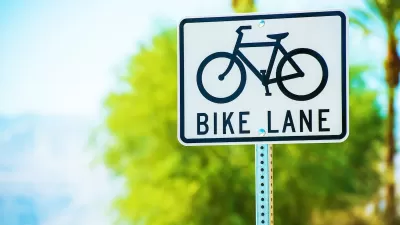Bikelash: some cities dish it out more than others and some bike advocates deal with it better than others. But could it be a sign that the pro-bike agenda is advancing?
"'Bikelash' is a snappy little word that names a condition quite familiar to anyone who’s been following the politics of city streets in the United States over the past few years," writes Sarah Goodyear. "It describes the resistance and hostility that the increasing presence of bikes on city streets sometimes produces in people who don’t ride bikes."
Goodyear links to articles making use of the term in cities around the city, namely Seattle, Philadelphia, Columbus, Ohio, and Washington, D.C.
Goodyear also calls attention to a newly released video by Clarence Eckerson of Streetfilms "interviewing bike advocates from around the country at this year's Pro Walk Pro Bike Pro Place conference, held earlier this month in Pittsburgh, about their response to bikelash."
In addition to suggesting some strategies for dealing with bikelash, Goodyear quotes an expert to make this point about the stages of societal evolution, and how bikelash might be, in fact, a sign of progress for the multi-modal agenda:
Kit Keller, executive director of the Association of Pedestrian and Bicycle Professionals, says that bikelash is part of the cycle that happens along with any big societal shift. “We say there are three stages of social change,” says Keller. “Ridicule, violent opposition, and then acceptance. And sometimes there’s a fourth stage, too, where someone who has been opposed to it from the beginning will say, ‘Oh, that was such a great idea, I was really for it from the start.’ And it makes all of us giggle and be happy, and we just go on doing good work.”
FULL STORY: Why Bike Lovers Should Be Happy About 'Bikelash'

Alabama: Trump Terminates Settlements for Black Communities Harmed By Raw Sewage
Trump deemed the landmark civil rights agreement “illegal DEI and environmental justice policy.”

Planetizen Federal Action Tracker
A weekly monitor of how Trump’s orders and actions are impacting planners and planning in America.

Why Should We Subsidize Public Transportation?
Many public transit agencies face financial stress due to rising costs, declining fare revenue, and declining subsidies. Transit advocates must provide a strong business case for increasing public transit funding.

Understanding Road Diets
An explainer from Momentum highlights the advantages of reducing vehicle lanes in favor of more bike, transit, and pedestrian infrastructure.

New California Law Regulates Warehouse Pollution
A new law tightens building and emissions regulations for large distribution warehouses to mitigate air pollution and traffic in surrounding communities.

Phoenix Announces Opening Date for Light Rail Extension
The South Central extension will connect South Phoenix to downtown and other major hubs starting on June 7.
Urban Design for Planners 1: Software Tools
This six-course series explores essential urban design concepts using open source software and equips planners with the tools they need to participate fully in the urban design process.
Planning for Universal Design
Learn the tools for implementing Universal Design in planning regulations.
Caltrans
Smith Gee Studio
Institute for Housing and Urban Development Studies (IHS)
City of Grandview
Harvard GSD Executive Education
Toledo-Lucas County Plan Commissions
Salt Lake City
NYU Wagner Graduate School of Public Service




























